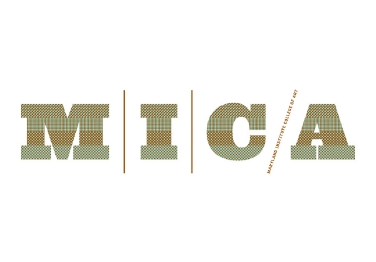
The Office of Community Engagement believes that artists and designers are vital to creating and sustaining vibrant, equitable and thriving communities. To support this mission the Office of Community Engagement now offers three distinct grants through the France-Merrick Opportunity Fund, the Community Engagement Grant for students, faculty, and staff, as well as the Curriculum Travel Grant, and the Engaged Alumni Grant, all of which support community-engaged projects and activities.
- For projects in Fall and early Spring: Monday, October 6, 2014
- For projects in Spring and early Summer: Monday February 2, 2015
- For projects in Summer and next Fall: Friday, May 29, 2015
Eligible applicants (see below) may apply for funding for such expenses as materials, supplies, entrance fees, and transportation that are integral to the development, implementation or evaluation of qualifying projects. Grantees may apply for funding (up to 25% of the total request) to compensate comissoned artists or guest speakers participating in Community Engaged projects. Salaries, tuition, and conference fees are currently ineligible for support.
Below is the list of all of the downloadable applicable materials that must be turned in to the OCE office (Bunting 340) by 5:00 PM on the grant deadline:
- Grant Application
- Project Budget (Using the required format) [PDF Version] [Excel Version]
- Reference Letters and Supporting Documentation (Optional)
Attention Applicants: Do not fill out application using Adobe Preview. Your application will not be saved properly. Application must be downloaded and filled out using Adobe Acrobat Pro or free Adobe Acrobat Reader. You can download a free copy here.
Please read the FAQ’s below. If you have any additional questions, please contact us at grants@mica.edu.
Any current MICA undergraduate, post-baccalaureate, or graduate student may apply, as well as faculty and staff. All applicants are required to be supervised by either a MICA faculty or staff advisor.
Projects should engage the MICA students in collaborating with community members to meet a particular community need or to pursue a desired outcome. Grants may be used either to launch a new project or program, or to strengthen/expand an existing project or program. Previous projects have ranged from after-school activities with children to community-based public art projects and social design initiatives. Letters of Support from partnering organizations that confirm both the need for the project and the partnering organization’s interest in collaborating with the applicant are not required but highly recommended and will be strongly considered in the grant review process.
All funding used for MICA’s Student Grant program is donor funded. However, it is distributed through two different offices: the Office of Community Engagement and the Office of Student Affairs. The Office of Community Engagement offers the Community Engagement Grant (OCE). The Office of Student Affairs offers the Community Service Fund Grant (CSF). For your convenience, only ONE application is required to apply for both grants and will be reviewed by each office. For more information on specific criteria for each grant, please click here.
| OCE | CSF | TOTAL | |
| Student working on co-curricular project. (Non-classroom based project) | $1500.00 | $750.00 | $2250.00 |
| Student working on curricular projects, including thesis projects and other projects for classroom credit. | $1500.00 | $0.00 | $1500.00 |
| Staff/Faculty member working on a community-based project | $1500.00 | $0.00 | $1500.00 |
In all cases, only exemplary projects with well-constructed budgets are funded at the top of the grant range.
No. While technically separate grants, these opportunities share the same application and deadlines. Only ONE application is required for a project and will be reviewed by each of the three offices. Only ONE budget (using required format) is needed itemizing total amount of funds you are requesting.
The project advisor is your chief resources for planning and implementation, as well as your best resource should unexpected difficulties arise. Other resources for planning and implementing a community-based project can be found on the Office of Community Engagement’s Toolbox or the student resources section of the Campus Compact website.
Your grant award letter will list the office to contact to gain access to your funds. Funding is distributed primarily through reimbursements and purchase orders. For reimbursements, grantees are responsible for completing and submitting a MICA Expense Reimbursement Form with all valid receipts numbered and attached to the office listed in your grant award letter. For purchase orders, grantee must use one of MICA’s approved vendors. More information will be provided in the grantee’s award letter.
Yes, you can. There is no limit to the number of grants that you can apply for. To be eligible for a new grant, however, you must have fully spent and “closed out” your previous grant and fulfilled the reporting requirements as listed in the grant acceptance letter.
All grant applications are reviewed by a committee comprised of one or more of the following: MICA faculty, MICA staff, and/or community members. Input from the committee determines whether or not the project is funded and at what amount.
Not all grants are fully funded. Many are only partially funded. Partial funding is typically due to one of two factors: a) the inclusion of ineligible expenses in the budget request, or b) lack of evidence of a compelling need for the expenditures. Applicants seeking full funding, at the top of the grant range, are advised to clearly articulate the need for each and every line item, either in a budget narrative or in the project description.
ALL grantees must submit a narrative summary of the project, including photos and any additional documentation, to the office identified in the grant agreement letter. In addition, grantees must give a brief (5-10 minute) final presentation on the successes and lessons learned through the project, at a date to be determined by the granting office. More information about reporting on your project can be found here.
